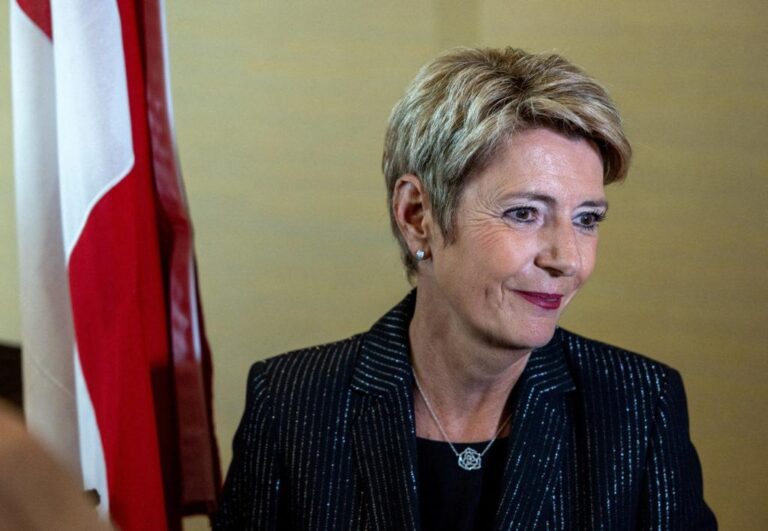Swiss President’s Emergency Trip to Washington to Defuse Tariff Dispute
In response to mounting trade tensions, Switzerland’s president has made a rapid diplomatic journey to Washington, D.C., with the goal of negotiating an agreement that would forestall the introduction of tariffs on Swiss exports to the U.S. This urgent visit follows intensified debates within the U.S. Congress that threaten key Swiss industries, including pharmaceuticals, precision machinery, and financial services. Swiss authorities stress the critical need to uphold the robust trade partnership between the two countries, warning that tariffs could disrupt supply chains and increase costs for American consumers.
Discussions focused on several vital topics:
- Safeguarding Swiss export sectors, especially in high-precision instruments and pharmaceutical products
- Strengthening bilateral investment frameworks to foster sustainable economic collaboration
- Resolving intellectual property issues to promote innovation and equitable competition
| Sector | U.S. Import Value (2023) | Potential Consequences |
|---|---|---|
| Pharmaceuticals | $5.8 billion | High tariff risk, supply chain disruptions |
| Machinery | $3.2 billion | Moderate tariff exposure, pricing challenges |
| Financial Services | $1.9 billion | Indirect effects on cross-border transactions |
Core Topics Addressed in U.S.-Swiss Negotiations
During these critical talks, representatives from Switzerland and the United States concentrated on preserving their enduring trade relationship by focusing on preventing new tariffs that could severely hamper commerce. Both sides recognized the necessity of keeping markets accessible to stimulate innovation and economic prosperity on both continents.
Beyond tariff avoidance, the dialogue encompassed broader cooperation areas such as:
- Aligning financial regulations to facilitate smoother cross-border business operations.
- Joint efforts on environmental and climate initiatives to achieve shared sustainability objectives.
- Enhancing intellectual property safeguards to support technological and pharmaceutical advancements in both countries.
The table below summarizes the positions held by each party on key issues:
| Topic | Swiss Stance | U.S. Stance |
|---|---|---|
| Tariff Prevention | Urgent measures to avoid tariffs | Open to negotiations contingent on concessions |
| Regulatory Harmonization | Advocates for mutual recognition and compatibility | Prioritizes protection of domestic interests |
| Climate Collaboration | Supports cooperative sustainability projects | Encourages innovation-driven environmental policies |
Consequences of Tariff Implementation on U.S.-Swiss Trade and Industry
Introducing tariffs could severely destabilize the intricate trade dynamics between Switzerland and the United States, leading to increased costs for importers and exporters alike. Industries such as pharmaceuticals, machinery manufacturing, and specialty chemicals might face heightened production expenses, which would translate into elevated consumer prices and reduced global competitiveness. Companies dependent on international supply chains could experience delays and increased administrative hurdles, hindering innovation and slowing economic momentum.
Additionally, tariffs often provoke retaliatory actions that affect a wider range of sectors. The cascading effects may impact:
- Export-driven manufacturers encountering diminished demand
- Small and medium enterprises (SMEs) struggling with unexpected cost surges
- Employment levels potentially declining due to scaled-back production
| Area of Impact | Likely Outcome |
|---|---|
| Consumer Costs | Rise due to higher import tariffs |
| Supply Chain Efficiency | Disruptions causing delays and inefficiencies |
| Global Market Position | Decline in competitiveness internationally |
Recommendations to Bolster U.S.-Swiss Economic Partnership
Prioritizing enhanced bilateral collaboration is essential through the introduction of targeted trade incentives that encourage innovation and knowledge exchange between Swiss and American industries. Sectors such as pharmaceuticals, technology, and finance stand to gain from harmonized regulatory frameworks. Promoting joint ventures and cooperative research initiatives will accelerate technological advancements while reinforcing mutual confidence and economic stability amid global uncertainties.
To foster sustainable development, policymakers should address tariff issues by crafting transparent policies that balance protective measures with the benefits of free trade. Strategic actions might include:
- Implementing gradual tariff reductions focused on vulnerable industries
- Creating a bilateral economic council to facilitate ongoing dialogue and resolve disputes
- Supporting SME involvement through cross-border financing and mentorship programs
| Initiative | Anticipated Result | Projected Timeline |
|---|---|---|
| Start Tariff Negotiations | Lowered trade barriers | Q3 2024 |
| Establish Economic Council | Improved communication and conflict resolution | Q1 2025 |
| SME Support Programs | Greater SME participation in trade | Ongoing |
Final Thoughts on U.S.-Swiss Trade Relations
As trade policy tensions persist, the Swiss president’s rapid diplomatic intervention highlights the critical importance of maintaining stable economic ties between Switzerland and the United States. Both countries appear committed to avoiding the disruptive consequences of new tariffs, emphasizing the value of continuous negotiation and cooperation in managing complex international trade issues. The results of these discussions will be closely monitored by global markets and policymakers, potentially setting a benchmark for future trade relations amid a rising tide of protectionism worldwide.







